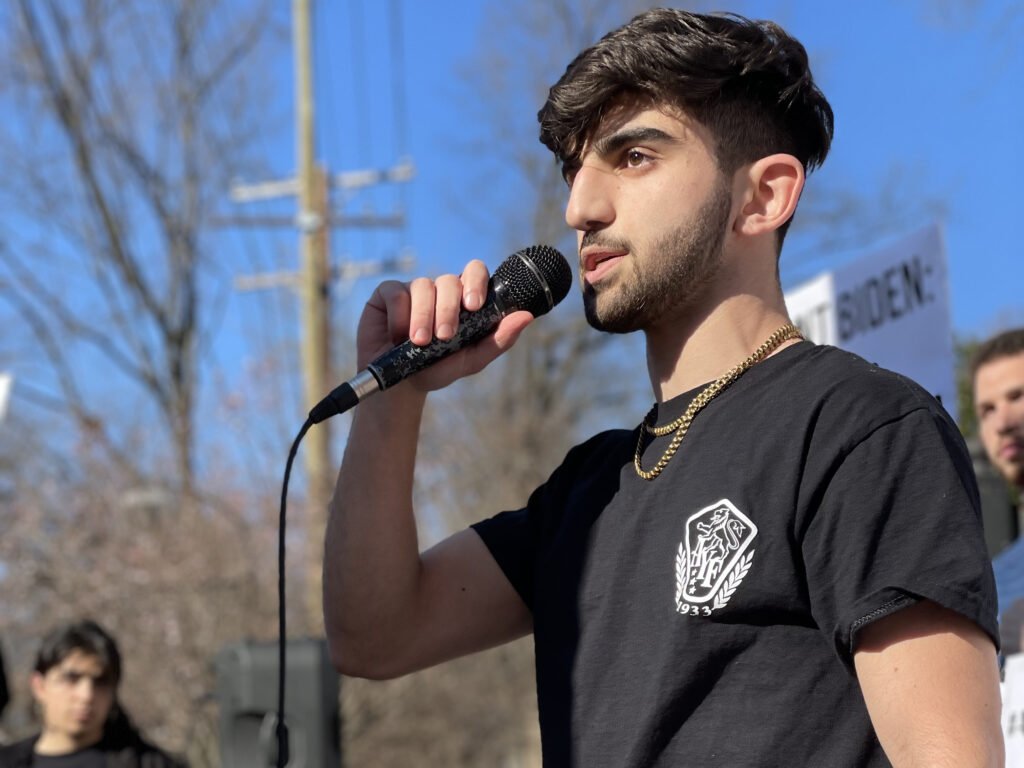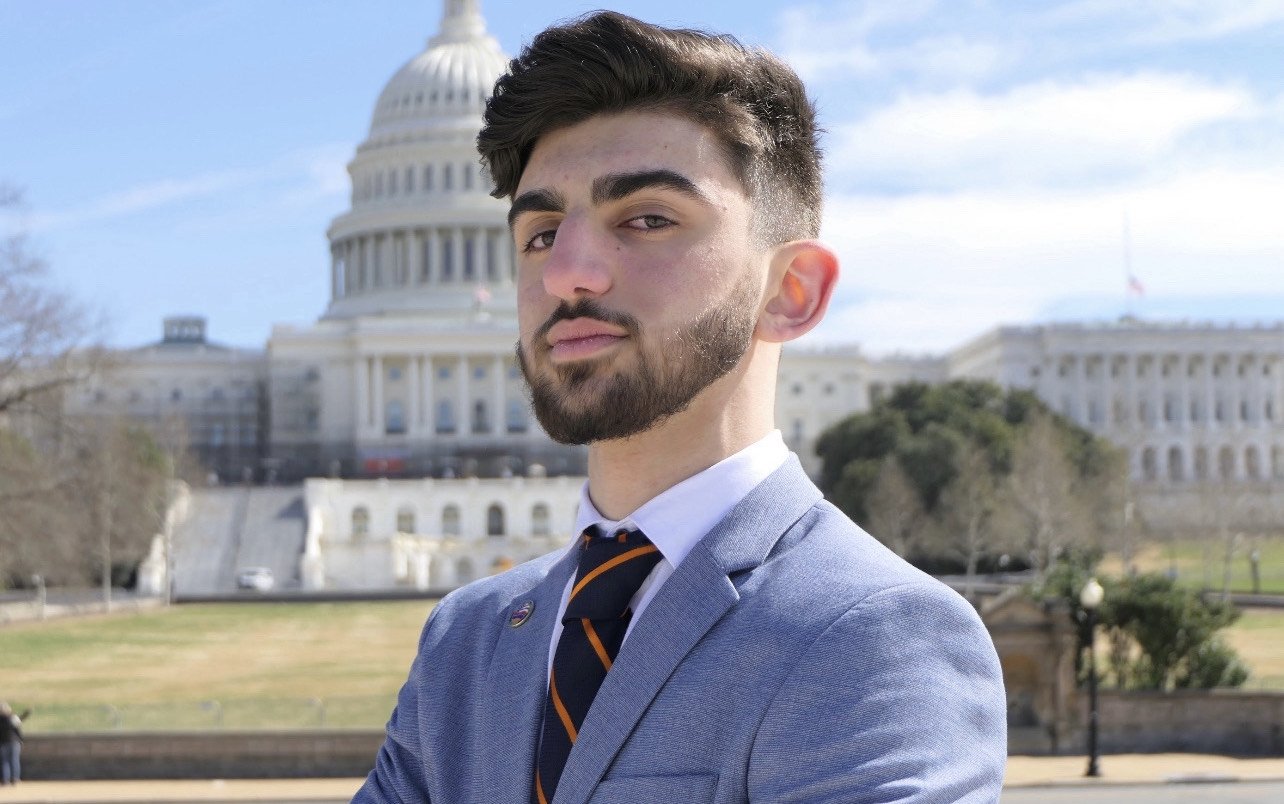
Editor’s Note: The following remarks were delivered at a February 26 protest led by the AYF DC “Ani” Chapter outside the Azerbaijani Embassy.
When I turned 16, my grandmother gifted me this chain I am wearing now. At the time, I thought it was just a piece of fashion, but I later learned that it is a piece of history, a part of what we are commemorating here today.
In the late 80s, Azerbaijani authorities orchestrated murderous attacks on Armenians living in Sumgait, Baku, Kirovabad and Maragha.
Armenians who were fleeing the horrors weren’t allowed to take any valuables with them. And so, my grandmother sewed this chain in the lining of my mother’s clothes as she fled the city of her birth, Baku, for refuge in Armenia.
My grandmother, orphaned at a young age by an Azeri who murdered her mother, stayed behind to pack up our family’s belongings. She saw her closest Armenian friends and relatives tortured and killed by the genocidal Azeris. She narrowly escaped with her own life.
She told me once about a phone conversation she had with my mother, who was already in Yerevan. She was hiding in her bathroom while Azeri men stormed her building and ransacked her apartment looking for Armenians. My grandmother had called my mother to tell her that she loved her for what was going to be, in my grandmother’s mind, the very last time. I remember the pain clouding her eyes as she told me this. It is the same pain I see in the eyes of the Armenian people today, as history repeats itself as Azerbaijan has begun yet another attempt at ethnically cleansing the Armenian people.
I wear this chain around my neck every day as a reminder of what we as a people have been through and fight for. Its ice-cold links freeze through my collar when I see the 120,000 people being blockaded to death in Artsakh by Azerbaijan.
I often think of my family and my grandmother, may God rest their souls; but the image I cannot shake from my mind is not only the one of Azerbaijanis killing the innocent, but also that of the Soviet guards who could have intervened but instead allowed the carnage to continue.
From 1988 to 1992, the United States perhaps had the luxury of pleading ignorance, but not in 2023, when Azerbaijan, emboldened by the lack of past consequence, has come back to try to finish the job it started 30 years ago.
Today, it is as an American citizen that I ask us: If we don’t take action today – if we don’t send emergency US assistance to the people of Artsakh, if we don’t stop arming Azerbaijan, what makes us any better than the bystanders who stood there and watched my ancestors be slaughtered?
If you are handcuffed to Azerbaijani authorities with blood on their hands, does that blood not get on your hands too?
From where I’m standing, it looks like the United States and other world powers have made a painful but firm statement: that the lives of 120,000 Armenian Christians are worth less than a few dollars off their oil bill every year. Azerbaijan’s money and oil lubricate a slippery slope that, should we slide down, will motivate, enable and encourage others of the world’s nefarious powers to act in the name of evil elsewhere. The United States set an example for democracy in 1776, but the world will see more dictators should Azerbaijan’s Aliyev and Turkey’s Erdogan continue to dictate with no repercussions.
The world does not care that today it is the Armenians. Tomorrow, it could be anyone else, anywhere else, as the precedent of inaction has been set and will only continue. As someone who has seen the aftermath firsthand, it is not a fate that I would wish upon my worst enemy, but it is sadly – yet unsurprisingly – a fate that Azerbaijan wishes upon me. As we remember the lives lost in Sumgait, in Baku, in Maragha and Kirovabad, we must not let our focus waiver from the lives we can still save in Artsakh. The United States has a golden opportunity to show the world what we stand for. The people of this world, regardless of national origin, are linked together by existence within the human condition, and if the nations and institutions of this world cannot protect that bond, then I would begin to doubt humanity.
That link is at risk of rupture, but we can stop it. We can save the rest of the chain, and pass our links down to future generations, as my grandmother passed hers down to me. But we must act now. The United States has an opportunity to unlock itself from the handcuffs of guilt, to be the upstanders who stop Aliyev’s genocidal actions. And I pray that we find the key soon – for the fate of our brothers and sisters in Artsakh is depending on it.



Sorry I was unable to provide a comment sooner but, I just received my March 4, 2023 issue of the Armenian Weekly.
Sorry for your family’s suffering at the hands of the Azeris.
Your words are powerful and your actions commendable.
Thanks for standing up for Armenia/Artsakh, for it is you and your contemporaries who must pick up the baton and carry it forward until justice is received for the atrocities committed against the Armenian people for centuries.
Abris!!